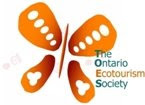The Tourism Sustainability Council - an article featured in
Ecotourism Ontario , winter 2010 edition. See our
newsletter pages for the complete and past publications.
Contributor: Catalina Etcheverry (United Nations Foundation)
Sustainable Tourism Program Manager
The widespread and worldwide movement towards sustainable production and consumption is finally catching up with the tourism industry. Luckily policy makers, business owners, service providers, local, national, and regional industry associations, academic institutions, non-governmental organizations, and concerned travelers are all beginning to recognize the role they have to play in promoting sustainable tourism. As a result, they are looking for ways to inform their decision making and verify the credibility of the tourism products they support. There is great potential right now to think smartly about how the tourism market can be used to preserve the environment and change people’s lives.
The Tourism Sustainability Council is borne with the mission to improve tourism’s potential to be a driver of positive conservation and economic development for communities and businesses around the world and a tool for poverty alleviation. It is a multi-stakeholder initiative created to serve as the international body for fostering the increased knowledge and understanding of sustainable tourism practices, promoting the adoption of universal sustainable tourism principles, and increasing the access to markets of sustainable product.
The biggest challenge for sustainable tourism was that, until recently, there was no clear and easily digestible definition with universal buy-in among the tourism industry, travelers, media and others. With no "common denominator" of what would be considered sustainable, there is inevitable uncertainty among travelers as to what they're actually embarking on and a certain inherit skepticism in the process. Clearly this artificially dampens the value of sustainability for operators and destinations. Until recently, there were hundreds of different measures for what constituted “sustainable tourism.” Some were good; some were bad; none was universal.
And so, along with the Rainforest Alliance, the UN Environment Programme, and the UN World Tourism Organization, the UN Foundation reached out to over 80,000 people and engaged more than 30 organizations to help launch a global standard for “sustainable tourism” that would let everyone know that they are on the same page. In 2008, a coalition of more than 50 partners representing industry, governments, nongovernmental organizations and academia, launched the Global Sustainable Tourism Criteria, a set of 37 criteria derived from certifications and best practices that are global in nature and feasible to implement.
Using these Criteria as a guide, tourists will know if they are traveling in a responsible way. Businesses, big and small, can profit from being able to certify their good works as they attract a growing number of people around the world who see personal value in this kind of tourism. The goal with the Global Sustainable Tourism Criteria is to help leverage and capitalize on the growing consumer interest by aligning all tourism stakeholders with a common understanding of sustainable tourism – from purchasers to suppliers to consumers.
The Criteria’s success depends on its universality, so great pains were taken to get everyone’s input over the course of 18 months. Through this process, four main characteristics that define sustainable tourism were developed: maximizing tourism’s social and economic benefits to local communities; reducing negative impacts on cultural heritage; reducing harm to local environments; and planning for long term sustainability.
To some this may sound like something that fits into the traditional mold of corporate social responsibility. But, it is becoming increasingly clear that tourists and travelers are beginning to demand sustainable tourism options. Embracing these values and practices early in the game will allow businesses to maximize their profits and become pioneers of sustainable tourism, a once in a lifetime opportunity.

